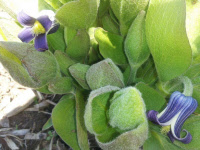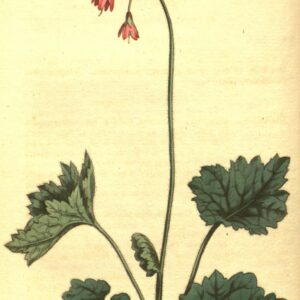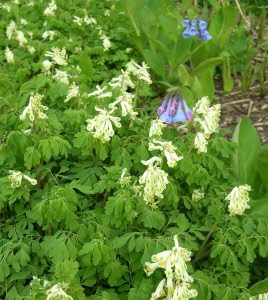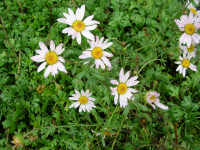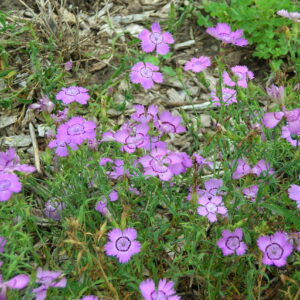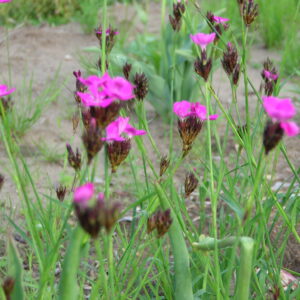Alpine, Rock, Miniature, Bonsai and Railroad Gardens
Showing 25–32 of 85 results
-
Clematis fremontii Fremont’s leatherflower Z 4-7
Purple to white nodding bells with petal tips flipped up on this short perennial – not a vine
OUT OF STOCK
Purple to white nodding bells with petal tips flipped up on this short perennial – not a vine
Size: 12-18” x 12”
Care: sun to part shade in moist to moist well-drained soil
Native: Missouri, Kansas & Nebraska1st collected by John C. Fremont (1813-1890) celebrated American explorer, instigator of the “Bear Revolt” that made California independent from Mexico. Governor, then senator of California, owner of California gold mine, abolitionist (“free soil” Republican), leader of soldiers who massacred Native Americans, 1st candidate for president on the Republican ticket and Civil War general fired by Lincoln for freeing the slaves of Missouri. After accumulating fabulous wealth (gold mine) and spending it all, he died in poverty in New York. I call him the most interesting American you never heard of.
-
Cortusa matthiola syn. Primula matthioli Alpine bells Z 4-9
Demure purple, drooping bells atop a short scape arising from a low carpet of foliage in May-June.
OUT OF STOCK
Demure purple, drooping bells atop a short scape arising from a low carpet of foliage in May-June.
Size: 9” x 10”
Care: shade to part shade in moist soil
Native: AlpsDiscovered in a valley near Vincenza Italy in the foothills of the eastern Alps by Padua botany professor J.A. Cortusus. His friend Mattioli (1500-1577) named it for him and the species was named for Mattioli. According to Mattioli women used the leaves to color their cheeks pink: “the leaves applied to the cheeks, and shortly removed, occasion a beautiful colour, resembling that from the finest rouge. . .” Gerard grew this in London in the 1590’s but it was “at all times rare.” Profiled in 1807 in Curtis’ Botanical Magazine, plate 987
-
Corydalis lutea syn. Pseudofumaria lutea Yellow fumitory, Z 4-8
Clumps of canary yellow narrow tube-shaped flowers with flared ends bloom over mounds of ferny foliage from late spring – fall. Longest blooming shade flower
Clumps of canary yellow narrow tube-shaped flowers with flared ends bloom over mounds of ferny foliage from late spring – fall. Longest blooming shade flower
Size: 9-15" x 18"
Care: part shade to shade in moist well-drained to well-drained soil
Native: Throughout EuropeCorydalis is Greek for “lark” korydalos, referring to the shape of flower, a lark’s spur. Lutea means “yellow.” According to 16th century herbalist Culpepper, “Saturn owns the herb” so Corydalis lutea cured Saturn’s diseases of the liver, spleen, leprosy, scabs, itches, cholera, salty blood, jaundice, melancholy, plague, pestilence and red eyes. Greek physician Dioscordes authored 5-volume De Materia Medica writing that this “hinders fresh springing of hairs on the eye lids.”
-
Corydalis ochroleuca syn. Pseudofumaria alba Z 4-8
Clumps of crem white with a touch of yellow, narrow, tube-shaped flowers with flared ends bloom over mounds of ferny foliage from late spring – fall. One of longest blooming flowers for shade.
Clumps of cream white with a touch of yellow, narrow, tube-shaped flowers with flared ends bloom over mounds of ferny foliage from late spring – fall. One of longest blooming flowers for shade.
Size: 6-12” x 12”
Care: Shade to part shade in well-drained soil
Native: BalkansCorydalis is Greek for “lark” korydalos, referring to the shape of flower resembling a lark’s spur. This species published in 1831. Gertrude Jekyll (1848-1931) planted Corydalis ochroleuca as a “wide carpet” under peonies in her spring garden at her home, Munstead Wood.
-
Cymbalaria muralis Kennilworth ivy, Pennywort Z 4-8
Tiny pink snapdragons all summer
Tiny pink snapdragons all summer
Size: 2-3” x spreading, trailing
Care: full sun to part shade in moist, well drained soil
Native: So. EuropeIntroduced to gardens by the early 1600’s. Southern Europeans ate the plant as a salad. Tournefort reported that it grew “on mud walls, old ruins and upon rocks” in Italy.
-
Dendranthema weyrichii syn. Chrysanthemum weyrichii Alpine daisy Z 4-8
Pink or white daisies all summer and fall
OUT OF STOCK
Pink or white daisies all summer and fall. One of the best for groundcover, front of border or rock garden plant.
Size: 6” x 18”
Care: sun in well-drained soil. Drought tolerant.
Native: East Asia & eastern RussiaCollected before 1891
-
Dianthus amurensis syn Dianthus chinensis Amur Pink Z 3-8
Five jagged-edged petals on its plum-purple blossoms, not pink, as are all other “pinks", the common name for Dianthus. It also flowers later and longer than most other Dianthus, flowering most of the summer. Its uniform purple stamens meld into the flower’s view but a thin, deep purple line encircles the center.
Five jagged-edged petals on its plum-purple blossoms, not pink, as are all other “pinks”, the common name for Dianthus. It also flowers later and longer than most other Dianthus, flowering most of the summer. Its uniform purple stamens meld into the flower’s view but a thin, deep purple line encircles the center.
Size: 12" x 12"
Care: Sun in well-drained soil
Native: Amur River regionAmurensis means from the Amur River (flows between the boundaries of China and Russia.) Re-named, separated from Dianthus chinensis, by French nurseryman and hybridizer Henri Antoine Jacques (1782–1866), best known for his creation of the Bourbon rose, in 1861 in Journal de la Société Impériale et Centrale d’Horticulture 7: 625. 1861
-
Dianthus carthusianorum Carthusian pink, Clusterhead pink Z 5-9
Deep reddish pink flowers atop wiry stems from June until frost
Rosy carmine pink flowers atop wiry stems from June until frost
Size: 16" x 8"
Care: sun in moist well-drained soil.
Native: Central and southern Europe
Wildlife Value: attracts hummingbirds. Deer resistant.The common name “pink” is from “pinct” referring to the jagged edge of the petals. The word “pink” referring to the color, came from the fact that most of the Dianthus are pink. This species may have come into gardens with the Carthusian monks in the 1100’s.

